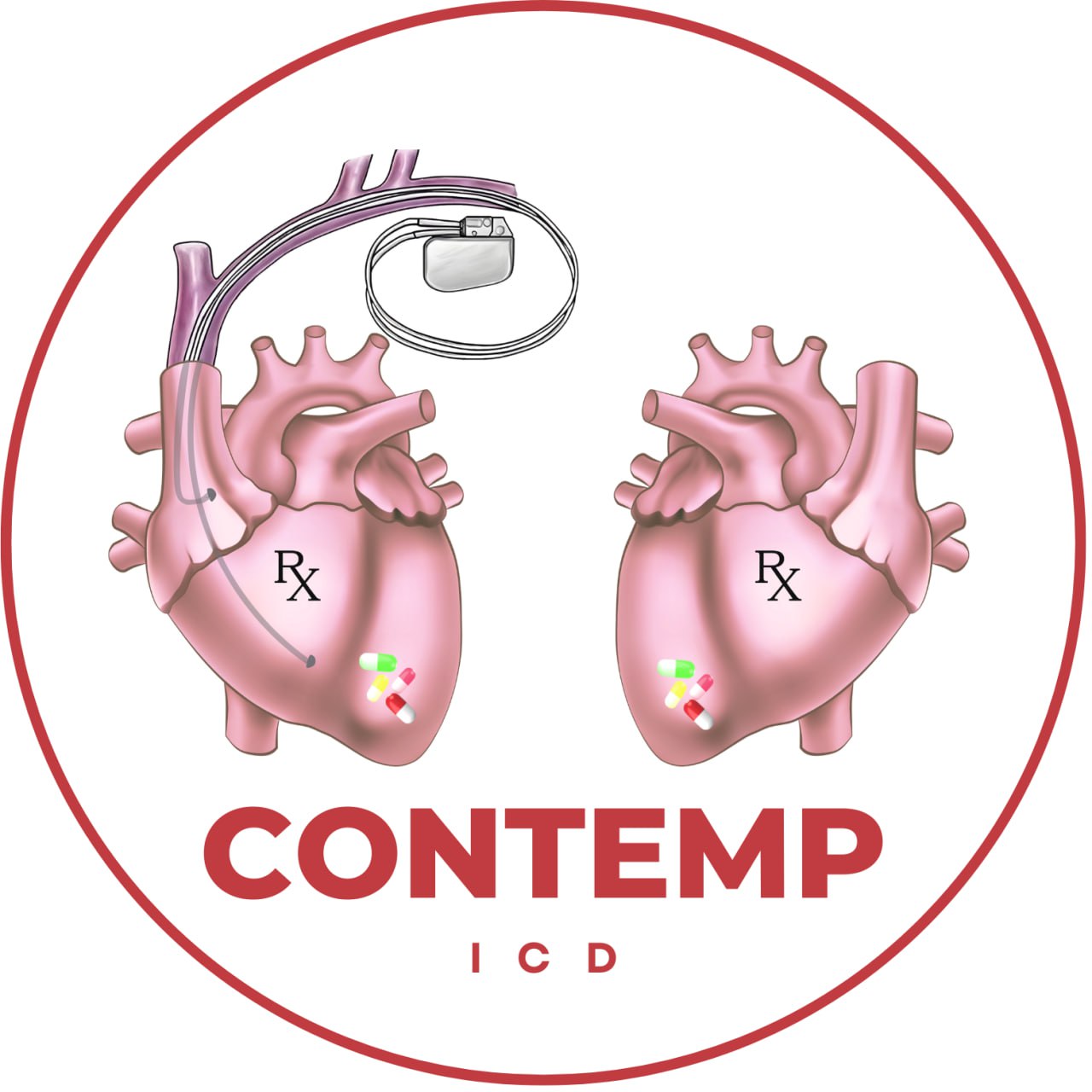For Clinicians:
The CONTEMP-ICD trial is a prospective, multicenter, open-label randomized-controlled study designed to evaluate the effectiveness of medical management without an implantable cardioverter defibrillator (ICD) versus with an ICD in patients with heart failure with reduced ejection fraction (HFrEF) who have a low predicted arrhythmic risk. Participants will be randomly assigned to either the Non-ICD group, continuing on optimal guideline-directed medical therapy (GDMT) alone, or the ICD group, receiving both an ICD and optimal GDMT. The study will involve regular follow-up visits to monitor health status, collect clinical data, and assess quality of life through standardized questionnaires, ensuring that the treatment fits into the participants’ heart failure care.

Inclusion Criteria:
Age:
Participants must be 18 years or older.
Heart Failure Diagnosis:
Participants must have ischemic or non-ischemic cardiomyopathy with a left ventricular ejection fraction (LVEF) of ≤35% after being stable on optimal guideline-directed medical therapy (GDMT) for at least one month.
ICD Indication:
Must have a Class I or IIa indication for a primary prevention ICD according to the 2022 AHA/ACC/HFSA guidelines.
MADIT-ICD Benefit Score:
Participants must have a MADIT-ICD Benefit Score of <50.
Willingness:
Must be willing and able to receive an ICD if randomized to the ICD arm.
Exclusion Criteria:
Existing Devices:
Presence of an existing ICD or cardiac resynchronization therapy-defibrillator (CRT-D).
Other Indications:
Class I or IIa indication for cardiac resynchronization therapy (CRT).
Recent Medical Events:
Acute myocardial infarction (MI) within the past three months, or coronary revascularization within the past three months.
Arrhythmias:
History of sustained ventricular tachycardia (VT) or ventricular fibrillation (VF).
Renal Failure:
Chronic renal failure requiring hemodialysis.
Life Expectancy:
Life expectancy of less than one year.
Informed Consent:
Inability to provide informed consent

Study Design:
- Participants will be randomized to either continue with optimal GDMT without an ICD (Non-ICD group) or receive an ICD along with GDMT (ICD group).
- Regular follow-up visits will monitor their health status, collect clinical data, and assess quality of life through standardized questionnaires.
Support for Clinicians:
Clinicians will receive training on the study protocol, GDMT optimization, and the use of the MADIT-ICD Benefit Score.
An implementation toolkit, including prior authorization templates, patient resources, and a clinical decision support app/website, will be provided to support optimal patient management.
Patient Benefits:
- The study aims to personalize patient care by reducing unnecessary ICD implants and associated complications such as inappropriate shocks, anxiety, and device-related infections.
- Patients in the Non-ICD group will avoid the risks associated with ICD implantation while still receiving optimal medical management for heart failure.

